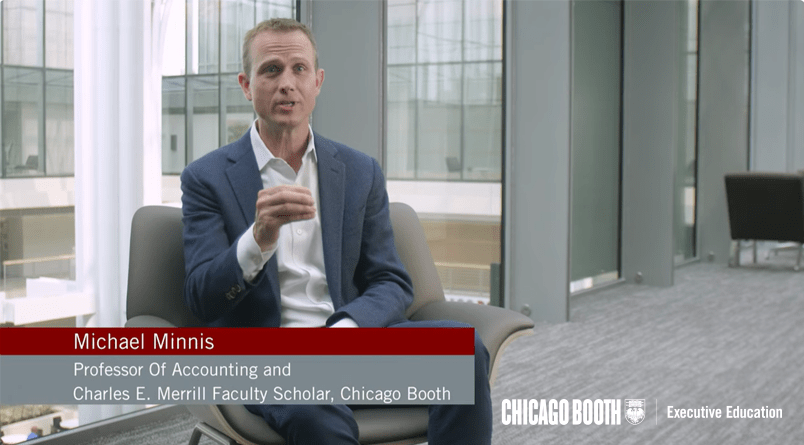
Michael Minnis
Deputy Dean for Faculty and Fuji Bank and Heller Professor of Accounting
Michael Minnis
Next Session
Coming Soon/TBD
Location/Format
In Person
Gleacher Center, Chicago
Investment Fee (in USD)
TBD
Questions? Connect with our enrollment advisors.
Next Session
Coming Soon/TBD
Location/Format
In Person
Gleacher Center, Chicago
Investment Fee (in USD)
TBD
Questions? Connect with our enrollment advisors.
Address your private company’s unique challenges, opportunities, and performance while retaining what matters to your organization.
This program serves as an elective to:

This program will benefit senior-level executives from private companies such as family-owned enterprises, private corporations, and partnerships.
Download the program brochure for in-depth insights into who should attend, participant profiles, and the ideal candidate.
Download brochure
At Booth, our distinguished faculty exemplify dedication and expertise, bringing deep passion to their teaching. Their steadfast commitment extends beyond traditional instruction, focusing on empowering every Executive Education participant, across all programs and global campuses, to achieve their professional and leadership goals.
“This program effectively addresses a wide range of challenges and opportunities relevant to executives of private companies. The faculty and staff are truly world-class.”
—Dave Doherty, President, DigiKey
“I liked the quality of the faculty and the array of topics that were assembled. They provided a valuable toolkit for someone running a company. I would definitely recommend it to anyone who runs a private business or wants a general management education.”
—Daniel Karrer, Strategy Director, StoneCO
Program dates are subject to change.
Download the program brochure for in-depth insights on who should attend, a schedule preview, past participant profiles, location highlights, networking opportunities, and what to expect. When doing so, you’ll also receive an editable justification letter to help you make the case to your employer for your attendance.
All fields required.
Inform your peers and coworkers about this program.